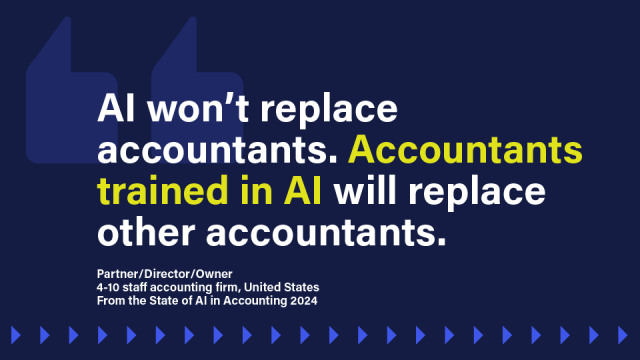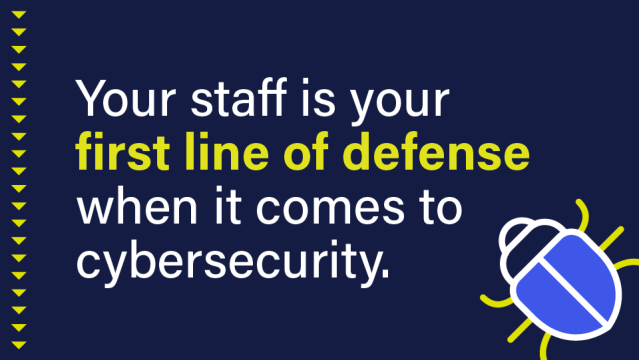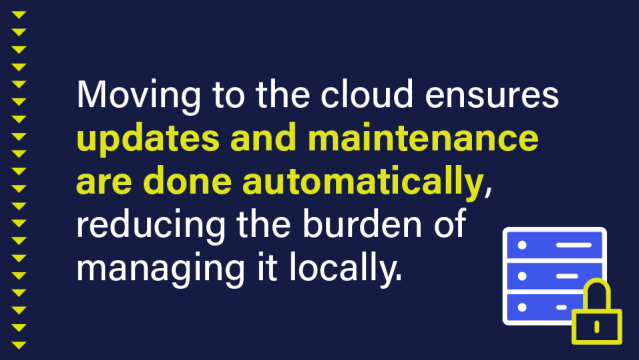As the remnants of Auld Lang Syne fade in the background and we start to gear up for—yes, I’m going to say it—busy season, it’s time we turn our attention to what lies ahead in 2024. And what does that include? Besides tax season, it’s the accounting tech trends that will continue to shape the profession. So, let’s get into it.
Continued ascension of AI

I know, I know. You get it. “Artificial intelligence (AI) isn’t the future—it’s already here, and it’s here to stay.” You’ve heard it time and time again. But I’d be remiss if I didn’t mention this accounting tech trend weaving its way through firms far and wide. It’s true, though; AI technology isn’t going away. If you’re concerned that it’s going to replace your people—it won’t. What it will do, though, is:
- Automate routine tasks. Forget about time-consuming manual data entry. AI can take on repetitive tasks, like payroll, expenses or reconciling statements. This frees up time for your staff to focus on other important things, like advisory services. In fact, 36% of firms use AI to automate their tasks.
- Reduce human error. AI can process large volumes of data with accuracy and precision. It can also detect anomalies or inconsistencies in financial data. That can come in handy while processing returns (just saying).
- Save time. Need to type up an engagement or termination letter? Or maybe you need to write a job ad, but you’re stuck on what to say? AI has you covered. You’ll need to review what AI has created, but it gets you about 95% of the way there.
If you haven’t introduced AI into your firm yet, we suggest you give it a try.
Increased use of cloud technology
This accounting tech trend probably doesn’t come as much of a surprise. But you’ll continue to see firms moving their businesses entirely to the cloud. Why? There are several reasons:
- It’s scalable. As your firm grows, the tools and technologies you use need to grow with it. An intelligent cloud like Rightworks OneSpace adapts to your ever-changing needs. Better yet, you can access all the apps your firm needs—in one place.
- It’s secure. Cloud solutions are protected by robust security features that thwart cyberattacks and threat vectors. They also provide layered security features like antivirus, firewalls, endpoint and detection response (EDR), and multifactor authentication.
- It’s flexible. Working in the cloud gives your staff access to the applications they need anytime and from anywhere. This allows your firm to work remotely and paves the way for real-time collaboration between clients and staff.
Clients want to work with firms that have scalability, security and flexibility at the forefront of their business models.
Enhanced data security

We know how important data security is for firms, so we’ll continue to see this as an accounting tech trend throughout 2024. Firms must protect not only their own data but also their clients’ data. This will manifest itself in several ways, including:
- Managed security. Let’s face it. Accountants aren’t cybersecurity experts, but you don’t have to be. Cloud providers have enterprise-class tools—and highly skilled teams—well beyond what any local provider could offer. Many firms will continue to move to the cloud and allow experts to manage their security.
- Training and awareness. Your staff is your first line of defense when it comes to cybersecurity. One errant click on a link in an email can put an entire business’s network and data at risk in seconds. Expect to see firms ramping up their security awareness training on an ongoing basis.
- Security protocols. As firms move to the cloud, their cybersecurity becomes more fortified. And that’s thanks to security practices cloud providers have in place, like continuous monitoring, threat detection, firewalls, current security patches and more.
The list goes on, but something important to keep in mind is that AI and automation play a big part in data security. AI can help prevent data leakage by detecting potential threats and unauthorized transfers. It also helps firms stay compliant with data protection regulations and privacy procedures.
Improved data analytics
Another accounting tech trend we’ll continue to see is firms guiding decision-making using data analytics. This will also increase their CAAS (client accounting and advisory services) offerings. Internally, firms can use data analytics to:
- Identify bottlenecks and inefficiencies in workflows.
- Predict busy periods and client demands where additional staff may be needed.
- Determine discrepancies in service offerings and pricing strategies.
When it comes to CAAS, firms can help guide their clients to:
- Uncover insights into their financial health and identify opportunities for improvement.
- Set goals and objectives based on industry benchmarks and standards.
- Anticipate their cash flow and plan accordingly.
With tools like Rightworks Connect using AI and automation (yep, I mentioned it again because AI is popping up in so many spaces), firms can lean on data analytics and provide more comprehensive services to clients.
Expanded digitization and automation

As the number of firms moving to the cloud increases, so will the trend of complete digitization and automation adoption. We’ll most likely see changes in:
- Cloud computing. As mentioned, firms will continue to make the move to the cloud, leaving traditional desktop software behind. This will allow simpler integration between accounting applications and other financial applications, like payroll, expense management and more. Moving to the cloud ensures updates and maintenance are done automatically, reducing the burden of managing it locally.
- Document management. The days of paper everything are numbered as firms make the shift to online document management. To maintain data security, we’ll see firms use secure applications like SmartVault to gather, store and share documents in the cloud.
- Client portals and collaboration tools. Client portals provide secure access to documents, electronic signatures, payment services and communication. Shared workspaces will improve efficiencies and allow firms to better serve their clients.
Overall, firms making the move to digitize their practices will streamline processes and workflows, enhance client offerings and save valuable time. This allows firms to focus on what matters—their clients.
Get trendy with 2024’s accounting tech trends
This list of trends may or may not surprise you. We know AI is here to stay. And you’ve seen how it’s woven its way through many aspects of the profession. If you’re on the fence about incorporating AI into your firm, start small.
AI doesn’t have to come back—because it’s been here, and it’s not going anywhere. But you knew that already.
When you’re ready to get #trendy—and move your business into the security and unlimited possibilities available in the cloud—check out OneSpace.



